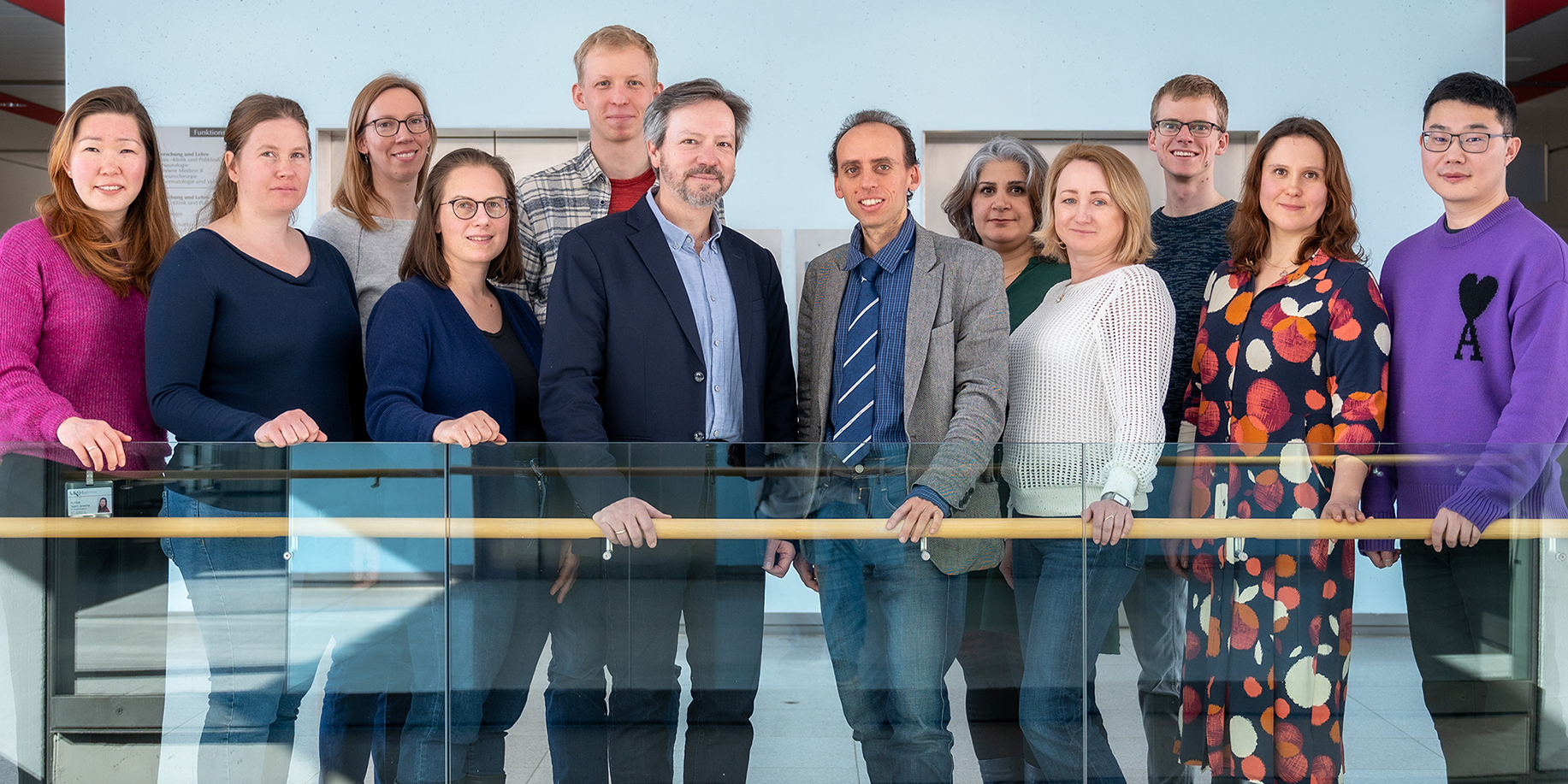
A Look into the Data Integration Centers: Paving the way for research and digital innovation in medicine – The Data Integration Center Halle
In the new SMITH news series “A Look into the Data Integration Centers”, a Data Integration Center established within the SMITH Consortium of the Medical Informatics Initiative (MII) will be presented on a monthly basis. The Data Integration Centers, which were initially established at university medical centers, create the conditions for secure and privacy-compliant access to high-quality data from routine care. In this issue, the Data Integration Center Halle presents its projects and services, explains how it is driving the digital transformation of healthcare, and outlines its vision for the future.
What is the structure of the Data Integration Center Halle?
The Data Integration Center Halle is a joint institution of the University Medicine Halle (UMH), which consists of the University Hospital Halle (UKH) and the Medical Faculty of the Martin Luther University Halle-Wittenberg (MLU). It consists of an operative and a scientific part. The operational division was established in 2019 as an independent department within the UKH’s hospital computer center. Seven employees are currently working here. The scientific area, which is part of the (Bio-)Medical Data Science working group at the MLU, is supported by five employees. The operational area of the Data Integration Center was established as a core facility to achieve the digitalization goals in a sustainable way. The Data Integration Center also includes the Use and Access Committee (UAC), which reviews and approves data use requests from researchers and clinicians.
What are the roles of the staff at the Data Integration Center Halle?
The operations team, also known as the “engine room” of the Data Integration Center, performs several key functions:
- Transfer Office: Consulting and management of data use projects
- Data Services: Data extraction, transformation and integration of software components or analysis scripts
- System administration: Operation and maintenance of the DIZ IT infrastructure, authentication management and IT security
- Fiduciary services: Pseudonymization services, identity management and consent management
What services does the Data Integration Center Halle offer to researchers?
The Data Integration Center Halle offers three main services:
- Data Use Projects
- Service projects for supply and research
- Study recruitment projects (e.g. TrinetX®)
In addition, it offers:
- Research IT infrastructure (e.g. Confluence®, REDCap®, eLabFTW® or cBioPortal®)
- Digitalization services
- Support for AI projects
What are you currently working on?
Since the beginning of the year, the Data Integration Center Halle has been working on the development of a digital care platform as part of the Care:ecoHUB, the seventh Digital Progress Hub (DigiHub) of the German Federal Ministry of Education and Research (BMBF). The aim of this hub is to improve healthcare in the innovation region for the digital transformation of care and health. Five healthcare institutions from different sectors will be networked to promote digital innovation and interoperable data integration. The DigiHub team will become part of the operational area of the Data Integration Center Halle.
In addition, the Data Integration Center Halle will support the IT infrastructure and processes of UMH’s Molecular Tumor Board, making an important contribution to personalized medicine. This cooperation is of central importance for the model project genome sequencing.
What are your goals for the future?
Our goal is to establish DIZ Halle as a center for medical research and data-driven innovation at the University Medical Center Halle.
Since 2018, the university medical sites of the Medical Informatics Initiative (MII) have been setting up Data Integration Centers funded by the German Federal Ministry of Education and Research (BMBF). In 2023, the Data Integration Centers of the university hospitals were integrated into the Network of University Medicine (NUM). Since then, they have been funded by the BMBF as part of the NUM, but continue to be managed by the MII.

